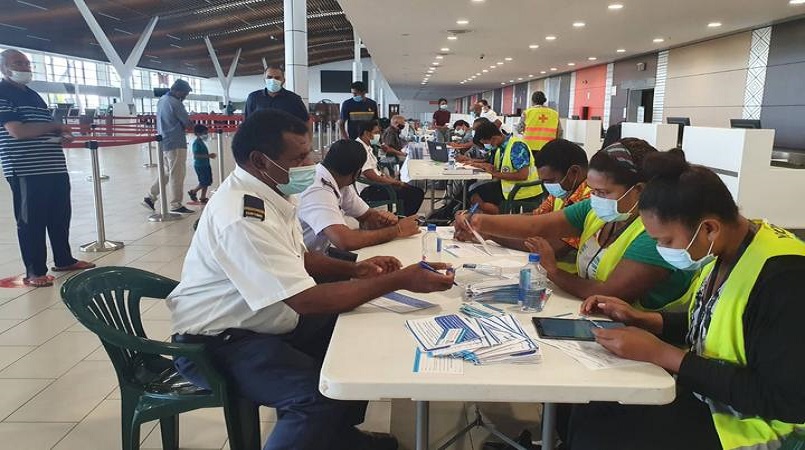
Eight days into the new month and there is not much evidence of any improvement to Fiji's COVID-19 situation.
The latest figures from the start of August show huge increases when compared with the same period in July.
By the end of July, Fiji's Ministry of Health and Medical Services had recorded 25,363 new infections and 218 deaths for the month.
According to government figures, the country started July with 3503 infections but by the month's end, 21,707 people were living with the Delta strain of the coronavirus.
But only eight days into August and the health authorities have reported more than 6500 new infections, which is twice the 1743 reported for the same period last month.
In terms of deaths, August has already registered 57 lives lost compared to nine in July.
In his update for 7 August, Permanent Secretary for Health Doctor James Fong had announced 682 new cases and six more deaths for the 24-hour period to 8am.
While most of the deaths have been the elderly, there continues to be an upward trend of younger Fijians.
Last night, an 18-year-old woman from Suva had died at home from the virus.
"Her family reported that she had a cough five days prior to her presentation," Dr Fong said. "She was not vaccinated."
In the same period last month, a 21-year-old man from Malake died of COVID-19. He was from an island off of Rakiraki in a small sugar-cane farming town almost 150 kilometres north west of the capital Suva.
"He was declared dead on arrival by the attending medical officer at the Rakiraki Sub-Divisional Hospital. This means that he died at home or on his way to the hospital. His family reported that he had shortness of breath one day prior to presentation," Dr Fong said.
"He received his first dose of the vaccine in early May. He did not receive the second dose of the vaccine. This means that he was not fully vaccinated."
Other deaths to younger patients included a toddler who died this month and a 15-year-old who passed away last month.
Dr Fong also noted alarming increases of new infections in the Western Division of the country which had dramatically reduced its cases to close to zero after the initial April outbreak.
He said there was "evidence of community transmission in that division.
"We are also recording increasing numbers of people with severe disease and deaths in the west. The northern and eastern divisions currently have no active cases."
